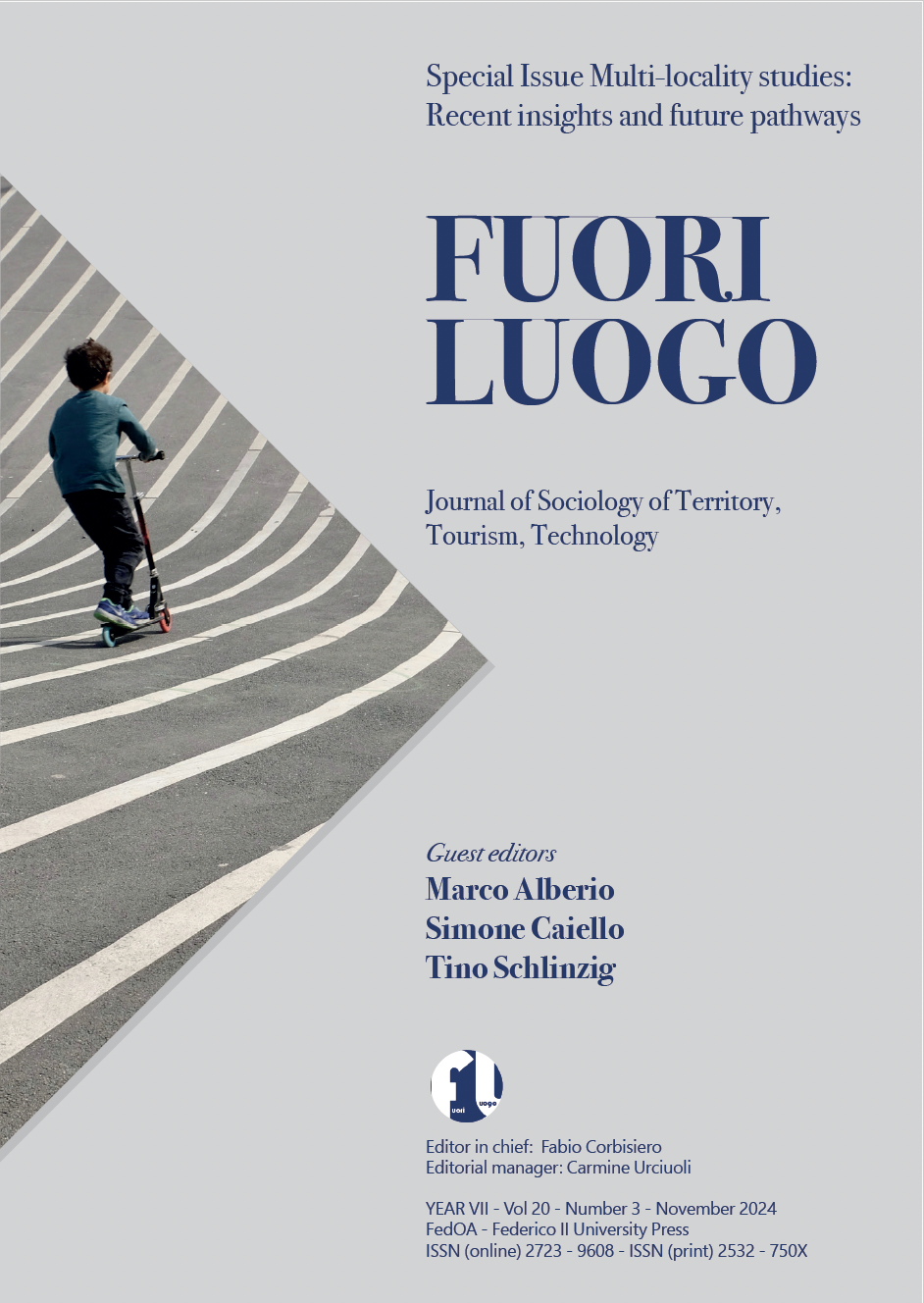The Flaneur-as-Researcher. An Autoethnography
DOI:
https://doi.org/10.6093/2723-9608/10799Keywords:
flaneur, queer, autoethnographyAbstract
Reviewing the nineteenth-century figure initially outlined by the poet Baudelaire and later codified by Walter Benjamin, the term "flâneur" is defined as the intellectual capable of getting lost in the city, pushing beyond its threshold to capture its "genius loci". In this article I discussed and reported a complete analysis of my thesis work. Once onceiving the flanerie as a research practice, I then conceive myself as a "being" flâneur and, at the same time, to conceive "its doing", identifying a methodological metaphor of the social researcher. To achieve this goal, I used my own experience, particularly focusing on my period of time in Paris, through the elaboration of autoethnography in an attempt to identify the flâneur's identity. By telling my story, I decided to speak of myself and my experience, seeking to investigate how the flâneur emerges and its related distinctive features. In particular, in addition to expressing how the practice of flânerie is discussed and experienced and what it means, I intend to focus on precisely who practices it, that is, the flâneur itself. Specifically, I asked myself: when and how does a flâneur take place? How does a flâneur or a practice of flânerie influence not only themselves but also others? Furthermore, what added value can I provide to make my experience as a flâneur more accessible? In this perspective, I intended to highlight the transition of flanerie from a macroscopic phenomenon, as a mere practice, to a microscopic phenomenon: a territorial exploration that also refers to the existence of those who practice it. This is an attempt to make this suspension, this waiting, a productive moment, in order to justify, in the eyes of the community but also to myself, my idling, in order to represent new forms of learning based on my own experience. Furthermore, since my empathetic knowledge journey in the territory strongly impacts my identity, I have conceived the condition of flanerie itself as a queer inclination. Autoethnography has allowed me to validate my experience as a flâneur, an issue that is usually not included in traditional social scientific research. Autoethnography, in fact, has made it possible to interpret and illustrate traditional concepts in the social sciences, making them accessible to those not familiar with the field, raising questions that would otherwise never have been asked.


